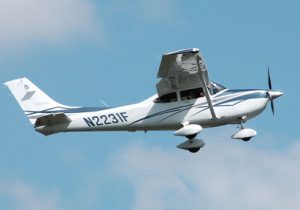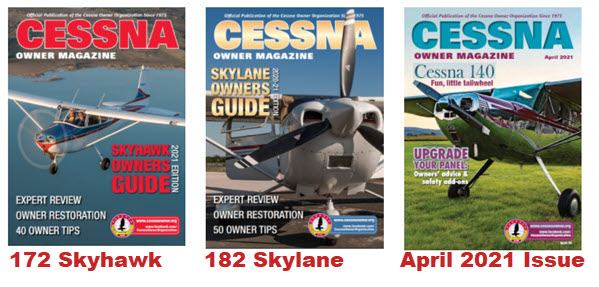 By Aircraft Owners and Pilots Association – www.AOPA.org
By Aircraft Owners and Pilots Association – www.AOPA.org
The FAA has proposed to adopt an airworthiness directive (AD) affecting numerous models of Cessna 172, 182, 206, 207 and 210 airplanes that would require inspection for possible metal-fatigue cracking in the lower area of the forward cabin doorpost bulkhead, and any necessary repairs.
AOPA is reviewing the proposed AD and will submit formal comments by the March 19 deadline.
The FAA said that following a report from an operator, investigation “revealed more than four dozen similar cracks” on affected aircraft, according to the notice of proposed rulemaking filed February 1. “This condition, if not detected and addressed, could result in failure of the wing strut attach point during operation, which could result in loss of control,” it said.
The FAA estimates that the AD affects 14,653 aircraft, and that the cost of compliance would include $127.50 to inspect each airplane and between $2,540 and $2,992 for any needed repairs. Total estimated cost to U.S. operators is $1,868,257.50.
The AD prescribes schedules for initial and repetitive inspections for airplanes that have accumulated less than 4,000 hours time in service, and those with 4,000 hours time in service or more.
Repetitive inspections for aircraft on which no cracks are found would occur every 12 months or 1,000 hours time in service, whichever occurs first. If cracks are found, repeat inspections would take place at intervals not to exceed 1,000 hours time in service after installation of the applicable service kit.
AOPA reported on the problem in February 2017 after the FAA circulated an airworthiness concern sheet seeking information from operators about the problem, and a risk of wing deformation resulting from cracks near wing strut attached fittings.
Operators may comment on the AD by March 19 online at: www.regulations.gov or by mail to: U.S. Department of Transportation, Docket Operations, M–30, West Building Ground Floor, Room W12–140, 1200 New Jersey Avenue SE, Washington, DC 20590. Refer to Docket No. FAA–2017–0049 and Product Identifier 2017–CE–031–AD at the beginning of your comments.
Article provided courtesy of Aircraft Owners and Pilots Association – www.AOPA.org


